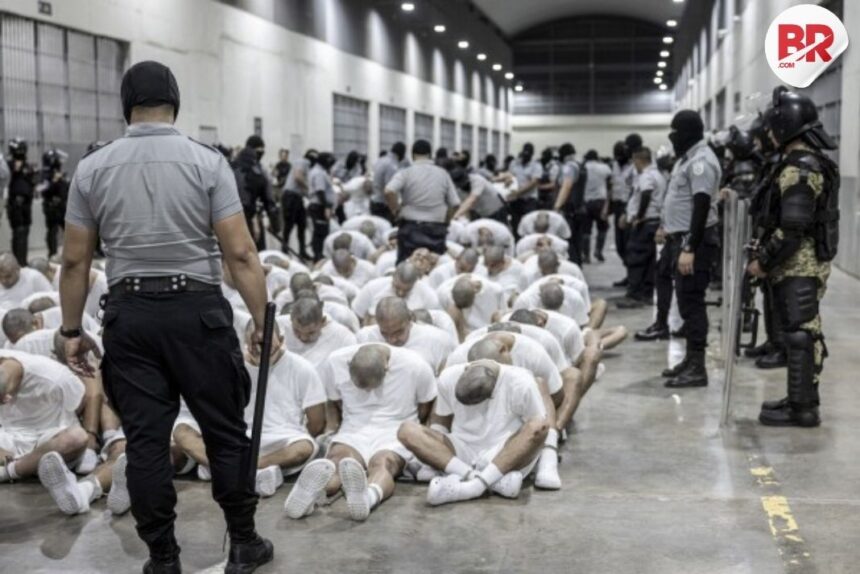
The U.S. Supreme Court has given a green light to the Trump administration’s plan to deport Venezuelan men suspected of being gang members under an old law called the Alien Enemies Act, which dates back to the 18th century. The decision, split 5-4, allows deportations to continue — but only if the detainees are given basic legal rights first.
What Is the Case About?
The Trump administration wants to use the Alien Enemies Act, a rarely used law that gives the president extra powers during wartime, to deport members of a Venezuelan gang called Tren de Aragua. Officials say this gang is linked to the Venezuelan government and is a national security threat.

Five Venezuelans in U.S. custody filed a lawsuit, arguing that they were not given a chance to defend themselves or prove they weren’t part of any gang. A judge had blocked the deportations, but the Supreme Court has now lifted that block — allowing deportations to resume as long as those affected get a chance to challenge their removal in court.
What Did the Court Say?
The majority of justices said that detainees must:
- Be told they are being deported under the Alien Enemies Act.
- Be given enough time to file a habeas corpus petition (a legal way to challenge their detention).
- Get a fair chance to argue their case in the correct court before being removed.
However, the court did not answer all the legal questions — like whether the Act can even be used against gang members, since it’s meant for wartime enemies.
Read More: Is Trump Considering a 90-Day Tariff Pause for All Countries? White House Responds
Dissenting Opinions
The three liberal justices disagreed with the ruling, and so did Justice Amy Coney Barrett in part. Justice Sonia Sotomayor warned that the government’s actions threaten the rule of law, while Justice Ketanji Brown Jackson criticized the court for making such a big decision through the “shadow docket” — a fast-track process without full arguments.
Justice Jackson also compared this case to past mistakes by the court, like the World War II ruling that allowed Japanese Americans to be forced into camps.
What’s Next?
The Trump administration says it will restart deportations immediately. But lawyers for the Venezuelan detainees say the ruling still gives them a big win — because it confirms that the government must give notice and allow detainees to challenge their deportation.
The administration had declared Tren de Aragua a terrorist group earlier this year. It claims members can be deported quickly without court hearings. However, critics say the way the government identifies gang members is flawed — including judging people based on tattoos, which may wrongly target innocent people.
This case shows how the Trump administration is pushing the limits of presidential power, and how the courts are struggling to keep up.
Background on the Alien Enemies Act
This law has only been used a few times in history — during the War of 1812, World War I, and World War II. Trump’s use of the law marks the first time it’s being applied outside of a major war, and critics say it opens the door for the government to target immigrant groups without enough proof or process.
Political Reaction
- Attorney General Pam Bondi said the ruling helps the president keep America safe.
- Homeland Security Secretary Kristi Noem called it a “victory for commonsense security.”
- ACLU attorney Lee Gelernt, who represents the Venezuelans, said the court’s requirement for notice and legal access is a “big victory.”
Also See: Trump Announces U.S.-Iran Nuclear Talks; Iran Says They’ll Be Indirect
Meanwhile, Trump and his supporters criticized the original judge, James Boasberg, who had blocked the deportations. Some even called for his impeachment — leading Chief Justice John Roberts to defend the judiciary.
The legal battle isn’t over, and this case is likely to shape how far presidential power can go in matters of immigration and national security.












